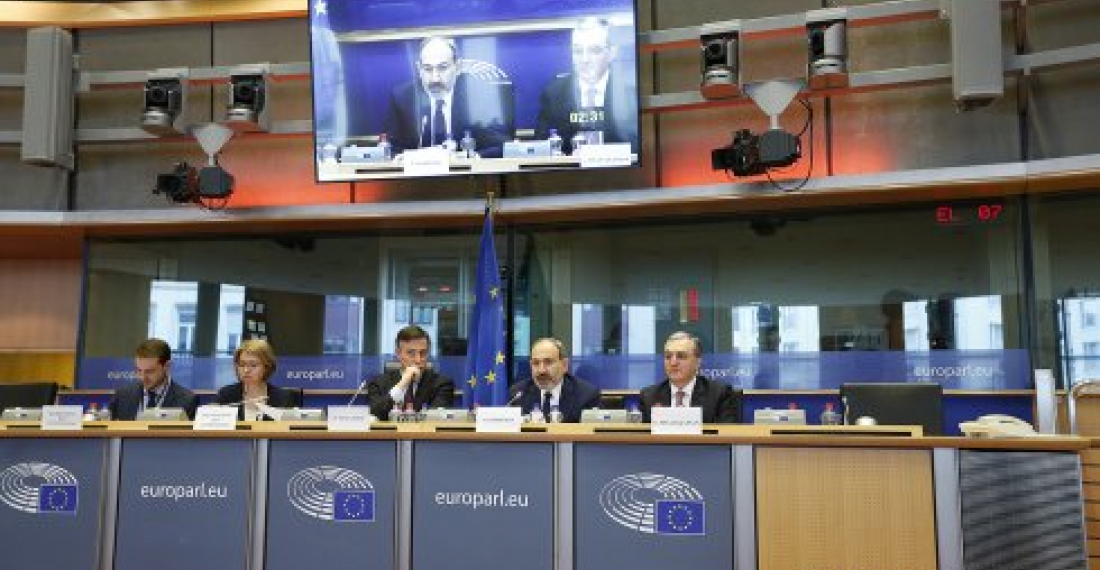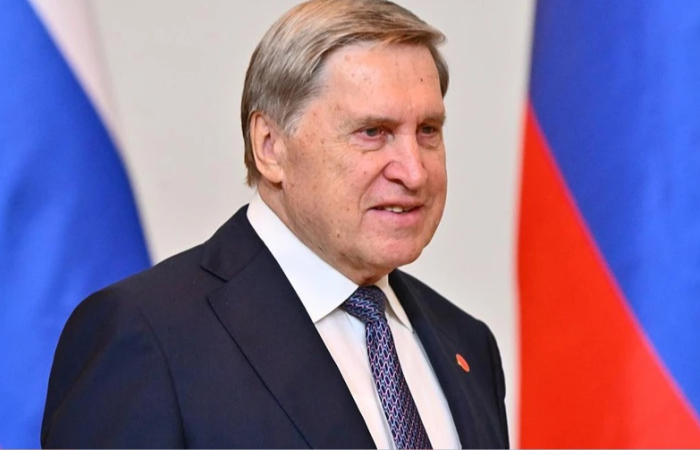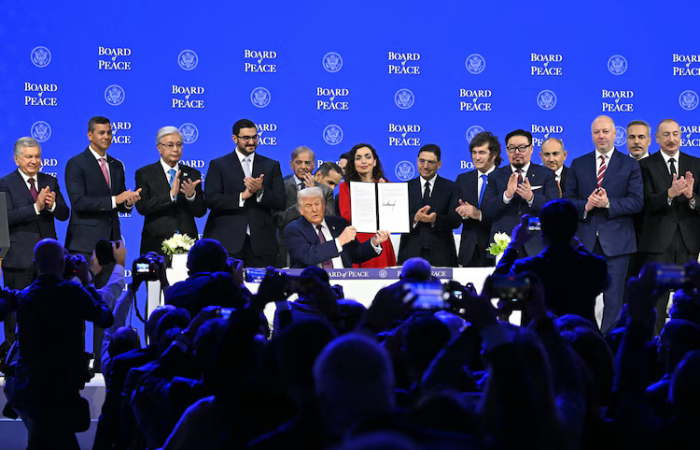Armenian prime minister Nikol Pashinyan has used a speech at the European parliament to emphasise the importance for peace in the South Cauicasus. But once again he insisted on the need to involve the leadership of the Armenians in Nagorno-Karabakh in the negotiations aimed at resolving the conflict in and around the territory.
"We see the South Caucasus as a region where independent nations live in peace, solidarity, and cooperation. Indeed, in the modern world, closed borders are considered at least economic and political nonsense. The world is changing by the day, resulting in a greater interconnection and interdependence. New forms of dialogue, coexistence, and economic cooperation are needed in our region. Culture of dialogue, tolerance and compromise should prevail over all differences and discrepancies existing in South Caucasus", Pashinyan told a meeting of the European parliament's Foreign Affairs Committee, at the start of his official visit to Belgium and to the European institutions in Brussels:
But Pashinyan insisted that Stepanakert "must have a seat at the negotiating table", telling the MEPS:
"We are confident that the path to the resolution of the conflict lies through the understanding of the need for the respect of the right of the people of Nagorno-Karabakh to self-determination.
People of this mountainous region have lived in de facto independence for more than two decades. There is a generation of young people there who cannot imagine any alternative to the independence.
If we seek for a peaceful, just and lasting solution to the conflict, the people of Nagorno-Karabakh should be allowed to define their future by themselves.
I am not representing the people of Nagorno-Karabakh. As the Prime Minister of Armenia, I only have the mandate of the citizens of Armenia, but not the Armenian population of Nagorno-Karabakh who have their own constitution and form their own Government.
It is obvious for me that the peace process could produce a real progress only if the people of Nagorno-Karabakh have a seat at the negotiation table; only if the voice of the people of Nagorno-Karabakh is heard and taken into account."
Pashinyan hailed "the constructive and balanced approach of the European Union" on the Karabakh issue, He also said that "the Comprehensive and Enhanced Partnership Agreement with the European Union is of tremendous importance for the success of our reforms".
You can read the full text of prime minister Nikol Pashinyan's speech to the foreign affairs committee of the European parliament, in Brussels on 4 March 2019 on the Armenian Government website, here
source: commonspace.eu
photo: Armenian prime minister Nikol Pashinyan apeaking at the foreign affairs committee of the European parliament, in Brussels on 4 March 2019. (picture courtesy of the press service of the government of Armenia)







